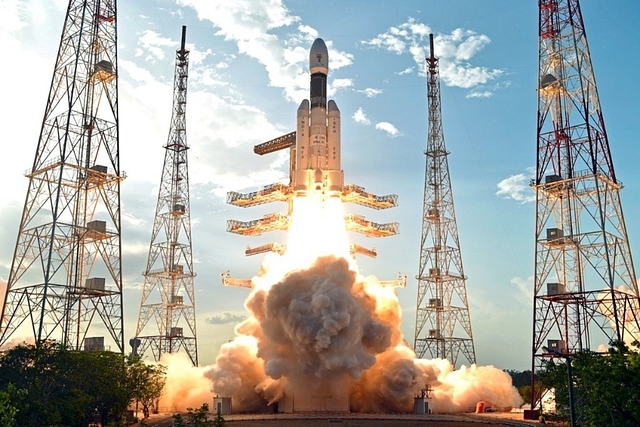News Brief
ISRO's First Launch For 2024 Is The X-Ray Polarimeter Satellite, To Research Emission From Celestial Sources

Alongside XPoSat, the PSLV-C58 mission will carry additional payloads. (Representative image)
Indian Space Research Organisation (ISRO) is gearing up for a New Year's launch, set to send its first X-Ray Polarimeter Satellite into space aboard a Polar Satellite Launch Vehicle (PSLV) rocket on Monday (1 January) as reported by Indian Express.
Following the success of the Gaganyaan Test Vehicle D1 mission in October, the PSLV-C58 rocket, on its 60th mission, will carry the primary payload XPoSat, dedicated to investigating the polarisation of intense X-ray sources in space, along with 10 other satellites.
The 25-hour countdown began on Sunday (31 December) for the lift-off scheduled at 9.10am on 1 January from the first launch pad at the spaceport, approximately 135 km east of Chennai.
XPoSat is ISRO's first dedicated scientific satellite designed to conduct research in space-based polarisation measurements of X-ray emission from celestial sources.
The objective of the mission includes measuring the polarisation of X-rays in the energy band of 8-30 keV from about 50 potential cosmic sources. The primary payload, XPoSat, consists of POLIX (Polarimeter Instrument in X-Rays) and XSPECT (X-ray Spectroscopy and Timing), with a mission life of approximately five years.
The space-based study of X-ray polarisation is gaining international importance, and XPoSat is expected to contribute significantly to the global astronomy community.
Beyond its observational capabilities, insights derived from X-ray polarisation measurements on celestial objects like black holes and neutron stars have the potential to enhance understanding of their physics.
The PSLV-C58 rocket will first deploy the primary satellite into a 650 km low earth orbit around 21 minutes after lift-off.
Subsequently, scientists will bring the satellite to a lower altitude of about 350 km for the PSLV Orbital Experimental Module-3 (POEM-3) experiment, demonstrating ISRO's commitment to advancing scientific research in space.
Alongside XPoSat, the PSLV-C58 mission will carry additional payloads, including Radiation Shielding Experiment Module, Women Engineered Satellite, BeliefSat, Green Impulse Transmitter, LEATTD Technology Demonstrator, RUDRA 0.3HPGP, ARKA 200, Dust Experiment (DEX), and Fuel Cell Power System and Si-based High Energy cell.
This mission is poised to play a pivotal role in building expertise in X-Ray polarimetry in India, fostering future advancements and collaboration within the astronomy community.
Support Swarajya's 50 Ground Reports Project & Sponsor A Story
Every general election Swarajya does a 50 ground reports project.
Aimed only at serious readers and those who appreciate the nuances of political undercurrents, the project provides a sense of India's electoral landscape. As you know, these reports are produced after considerable investment of travel, time and effort on the ground.
This time too we've kicked off the project in style and have covered over 30 constituencies already. If you're someone who appreciates such work and have enjoyed our coverage please consider sponsoring a ground report for just Rs 2999 to Rs 19,999 - it goes a long way in helping us produce more quality reportage.
You can also back this project by becoming a subscriber for as little as Rs 999 - so do click on this links and choose a plan that suits you and back us.
Click below to contribute.
Latest